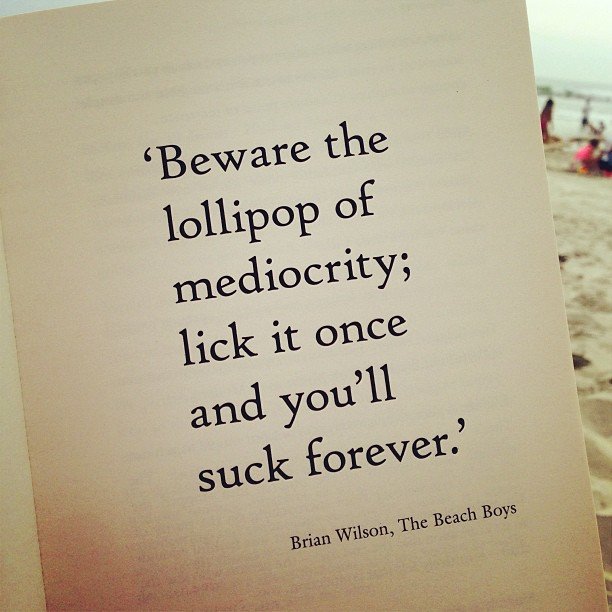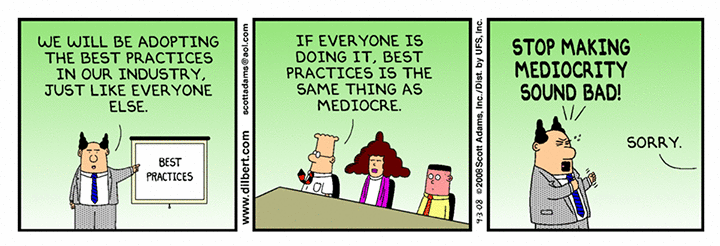The Kakonomics of Socialism, or What is Socialism? Part 2
The Kakonomics of Socialism,
or
What is Socialism? Part 2

Image source
Within most modern day economical postulates there is the common preconception that economical exchanges are pursued in an ideally competitive equilibrium point. At this point all scarce resources should have a natural tendency to be allocated in the most efficient manner by all participants in the free market place, and so all needs will mostly be satisfied in the highest possible standard available corresponding to the monetary equilibrium value that the market players have settled on for said resource. In more down to earth terms, we want the most bang for our buck, while the seller wants the most bucks for his bang, and somewhere in the process they end with the best possible outcome for both.
This is all good and dandy when you are talking about a society that generally speaking has certain higher moral, ethical, and ideological standards in common between its inhabitants. Now enter Kakonomics, where exchanging mediocrity is the rule, a world in which everybody living within it has the inborn tendency to provide a sub-par work or service, and in exchange they just as well actually prefer to receive a comparably under-par work, service or monetary compensation. In a Kakonomic exchange the buyer doesn't mind or care for getting less bang for his buck, for he intends to pay the seller in a less than complete way in some form or another, and the seller will not complain at this because he knows he is somehow selling just poof and not bang.
What?! Really?! How is that even possible?!
It is actually more commonplace than anybody in most first world countries would imagine, even within a good many of those "developed" countries. While most third world country inhabiting readers, if they recognize that tendency among them and their peers will probably just shrug and say, "So? What else is new? I just give it as I take it, it just makes life that much simpler and less stressful."

Image Source
Maybe an example will clear the picture a little. Say you live with a couple of sloppy roommates and you are quite the slovenly type as well, and then someone new moves in and he's quite the anally uptight orderly nazi type, yeah, you know what I'm talking about. Suddenly your perfectly kakonomic world is upturned and you and all the other roommates are quite upset, this new guy is making everybody else feel uncomfortable and awkward, he's cleaning up and ordering things after everyone, and generally getting into everyone else's nerves. You and your previous roommates had slipped into a kakonomy of disorder and disarray, and you were quite content with that, no problemo. You had not only accepted it, you had taken it for granted, and when somebody else came in and tried to elevate your standards, you all actually resented him for it, he kind of makes you all feel guilty. So you all make up some excuse, you dump the new guy and you're all back to your sloppyish normalcy, and long live Kakonomics.
The real problem with allowing Kakonomics to creep in as the standard is that little by little the cost of the propensity for mutually lower quality exchanges will prove over time to be exceedingly more detrimental as flexibility slowly shifts into a greater laxness, an apparently harmless tolerance to an ever growing sloppiness, and the ensuing discontent generated will then decline into more damaging breaches of trust. When these conditions start to pervade a society then normal standards in education, politics, media and cultural creativity in general will continuously decline and slide into a descending spiral that is increasingly more and more difficult to spin out of. The decrease in competitiveness will soon promote an economic downturn that will end in a major unemployment crisis and a prolonged depression with much political instability and unrest (Spain, Greece, Italy etc. anyone?).
Actually it was only as recently as 2009 that this "phenomenon" was first described in a scientific article, no less, being originally observed in a first world country by two Italian academics, sociologist Diego Gambetta and philosopher Gloria Origgi, who authored the piece and titled it "The LL game: The curious preference for low quality and its norms," which postulates:
"We investigate a phenomenon which we have experienced as common when dealing with an assortment of Italian public and private institutions: people promise to exchange high quality goods and services (H), but then something goes wrong and the quality delivered is lower than promised (L). While this is perceived as ‘cheating’ by outsiders, insiders seem not only to adapt but to rely on this outcome. They do not resent low quality exchanges, in fact they seem to resent high quality ones, and are inclined to ostracize and avoid dealing with agents who deliver high quality."

Image source
So, for instance, in Italy if you hire a contractor to do some renovation work for you, you can rest assured that either the quality of the work promised or the agreed upon time frame for completion will be broken, sometimes both. Yet you have no need to worry, because the contractor is not counting on you paying him when you promised you would anyways, take it easy. In the end both parties will be equally happy whatever the outcome and take it all in stride, they have both played the "LL game" and Kakonomics has won the day.
Within their article Gambetta and Origgi provide another pathetic example from within the Italian academic world:
"When Federico Varese (1996) revealed that Stefano Zamagni, a well-established Italian economist, had plagiarised verbatim several pages from Robert Nozick, Varese was criticised by several Italian colleagues who together evoked nine norms or reasons that he would have violated by blowing the whistle. None of these include a justification of plagiarism per se. Varese discusses them in an unpublished article (“Economia d’idee II”). They are worth listing, their range is staggering:
1. There is nothing original, everyone plagiarizes, so why bother? [journalist]
2. Whistle blowers are always worse than their targets [sociologist]
3. What is the point of targeting Zamagni? They will never punish him anyway.
4. What is the point of blowing the whistle as you will pay the consequences [family, friends]
5. He is a good “barone”, much better than many others, so why target him? [economist]
6. Zamagni is a member of the left and you should not weaken the left during election times [economist; various friends]
7. Zamagni shows good intellectual tastes as he plagiarises very good authors, so he does not deserve to be attacked [philosopher]
8. Given that many are guilty of plagiarism, targeting one in particular shows that the whistle blower is driven by base motives.
9. In addition, an economist suggested an explanation rather than a justification saying that the real author of the plagiarism was probably a student of Zamagni who wrote the paper for him. This would, funnily enough, imply that Zamagni was innocent of the plagiarism, but still that he signed a paper he did not write, written by someone who also did not write it!"
—Diego Gambetta, Gloria Origgi, The LL game: The curious preference for low quality and its norms, November 2009
There seems to be a curious kind of amicable collusion with the wrongdoer, while they are bitterly attacking the whistle-blower, for them there is nothing regrettable on this LL exchange, all the problem is the H seeker. Also notice the part where they affirm that Zamagni is a "member of the left"? That's no coincidence, but more on that further on.

Gloria Origgi
The term Kakonomics was coined by one of the authors of the original "LL Game" article at a later time (in 2011, more precisely). Gloria Origgi, wrote another article to respond to that year's question of the EDGE website, namely: WHAT SCIENTIFIC CONCEPT WOULD IMPROVE EVERYBODY'S COGNITIVE TOOLKIT? She begins her article (found here and well worth a read as well) by proposing:
"I think that an important concept to understand why does life suck so often is Kakonomics, or the weird preference for Low-quality payoffs."
She describes it as a "weird preference", nevertheless this mutual collusion in accepting, and worse, even expecting an exchange in mediocrity to the exclusion of any other outcome that, thanks to her, we now know as Kakonomics, is something that can be witnessed in many parts of the world and in many walks of life. I personally have experienced it first hand in some way or another in most Latin American, African, and even in several European countries. The really sad part is that wherever I've seen it or experienced it happen, it has always been in a country which is either suffering a socialist regime of some sort (the most pathetic example is Venezuela), or is a very left leaning or socialist tolerant society.
Is this an anomaly or a "coincidence"? Not at all, on the contrary it is quite to be expected for whenever you even attempt to remove the economic raison d'être, the monetary incentive that a free market produces in most individuals, you leave behind a motivational vacuum that needs to be filled with something else. Different left leaning or socialist ideologies have tried and failed with a number of strategies, tactics and methods to provide a sufficiently potent moving force, a comparatively equal alternative to economical incentive that would similarly drive individuals surviving in these systems to seek and strive for excellence in general as they tend to do in a free market society.
The Bolsheviks (together with all other Marxists likewise) tried (and miserably failed) to fill the void with the idea of the constant "revolution" at the hands of their greater than life "leaders", tied in with a drowning cascade of never ceasing propaganda extolling the "virtues" of the communist or "people's" revolution, that was inevitably all backed with an oppressive cocktail of indoctrination, repression, totalitarianism and total exclusion of any individual liberties.
The nationalists and fascists (all forms of leftist collectivism that the socialists have most successfully convinced many in believing they are somehow "right wing" ideologies) tried (and also miserably failed) to change the people's primary motivation with their Utopian vision of the supreme state or "fatherland" fed down the collective throat of their populace with more than generous mouthfuls of endless propaganda glorifying the eternal state and/or the fatherland that would exist for ever after. They just had to profess their total and unflinching trust in their grand leaders that would direct them to the "promised land", and if you didn't like that, well there was always the totalitarian repression, oppression, together with ample helpings of ideological indoctrination, while your individual liberties were a far second or third place to the supreme needs of the state or fatherland.

And then there are the social democrats (still socialists, but they want you to believe that they are the "good" socialists, they are "progressive", "liberal", "humanist", and a slew of other misleading terms and untruths), their attempt at shifting your "greedy" motivations is by convincing you that they are not out to do anything with your economical liberties, "if you want your free market, you can keep it [yeah, right], just let us take control of all of your other liberties and freedoms, of course, it is all for the common "collective" good. Oh, and by the way, in order to take control of all of your other freedoms and liberties, we need to limit your economic liberties and rob... er... tax you with over half of what you earn, thank you, also surrender your guns, you have no need for those, we are 'protecting' you. Never forget we are doing it all in your best interest, please bend over and spread them."
WHOA! What the frig is going on here?! At least with the commies, the nazis and fascists you know what to expect from the start. They have no qualms in admitting they want to go ape totalitarian on you, but these slithery slimy "social democrats", they do it inch by slippery inch without batting an eyelid. They don't "indoctrinate" you, they "educate," through implementation and central control of public education and its curriculum, where they will be "teaching" you on how good papa state is as well as how a "good citizen" pays all his legalized plunder... er, taxes I mean, promptly and without hesitation. "If you don't like it, we have the laws and courts and the guns to convince you otherwise." JEESH, ok, ok, you're the "good" guys! NOT!

Freedom or Free Stuff, You only get one.
In the end Kakonomic societies will slip into real socialism, not the Utopian kind which is of course unreachable except maybe in the after life for those who fancy that. Likewise, socialist communities are nothing else but Kakocracies, it just cuts both ways. Socialist ideologies produce Kakonomic tendencies, which then materialize into economically failing societies, that slip into falsely entitled masses of people demanding more and more "free stuff" in exchange for basically doing nothing (the most quintessential of all Kakonomic exchanges) other than supporting those promising the free handouts. It's a vicious circle that just can't end well, and has never ended well wherever and whenever it has been left unchecked.
When economic incentives and differences are removed from the table, people in general revert to not wanting to do more work than they need to, and specially not more than the other guy next door for exactly the same amount of rewards he's getting.
The other "motivators" that socialists want to ram down your throat (revolution, downward equality, fatherland, state, or even a welfare state), in the end just don't cut it in pushing the general populace towards greater excellence. Precisely because they are only collectivist ideals, they say and mean precious little to individuals except maybe for the limited time that propaganda is still producing some effect on them not neutralized by harsh reality. As time goes by and the Utopia fails to materialize (as it always must and will), the individuals lose faith and trust in those synthetic collective "motivators."
In the end everyone will just accept lower quality exchanges for lower quality goods or services, and they will even start to expect and demand from everyone else exactly the same. Living in this system you become a sloppy, slovenly sloth, doing minimal and more careless work because in the end you will get exactly the same "reward" for your job independently of what effort you put into it, so why bother?
It is also a well known fact in many factories around the world, but specially in the more "socialist" inclined societies with strong organized national labor syndicates, that there is a marked tendency to gang up against those workers who strive to work better and harder than their peers. The "normal" workers will gang against those who keep up or raise the standards of performance because they're making the rest look like bad performers and thus this would force them to work harder. This is particularly the case when rewards are practically insensitive to any varying level in performance quality (for example the salary at the end of the month is basically the same, as is the case in many syndicate sponsored collective contractual work agreements of workers) where there is absolutely no point to produce anything at a higher quality level.
This is exactly and without failure the outcome of all socialist attempts the world has experienced, a generalized disincentive for higher quality work, a downturn in the self motivation of everyone in general to excel at what they do, a collective inefficiency that permeates through society where nobody wants or expects anything better and even demands that no one do anything better than anyone else.
There may be some exceptional areas, where the socialist state invests more heavily solely for its own strategic interest. Only in those specific areas the state provides greater incentives (monetarily, better living conditions, special privileges, etc.) to the workers or participants of those specific sectors and nowhere else. That is the explanation, for example, for those exceptional sports achievers that most socialist regimes have touted at the Olympiads, or the military weaponry researchers and designers, that seem to be the exclusive areas of particular excellence that socialist states wish to develop for obvious propaganda and defense reasons. Meanwhile the rest of society is left to rot in the generalized Kakonomics of Socialism, a condition that can take decades or generations for a country to climb out of.
#economics #socialism #capitalism #steemsquad #minnowsunite
You may also like to read What is socialism?


Feel free to upvote, follow and check my other posts.
All follows will be followed back.
https://steemit.com/@catsmart
Hey, I missed your post earlier on. Another good one. Thanks.
I will probably feature it in the next QC Featurette for people to read.
Take care. Peace.
Thanks, @krnel. Take care too, Cheers.
Really detailed, going back to the first post to read from the start.
Thanks, hope you enjoy them.
That's good enough for government work.
Yup, goverment work certainly usually qualifies as more Kakonomical than the private sector counterpart.
Love the amount of work you put into this post catsmart. I had never heard of kakonomics before and had to google to see if you created a new word! Thanks for introducing me to something new. :D
Thanks @getonthetrain. Kakonomics is a relatively recent term, 2011, coined by the Italian lady I mention in the article, but the connection between it and socialism is mine. I had long ago noticed the lowering of standards in societies brought about by socialist ideas, but didn't have a name for it until I read and researched about Kakonomics.